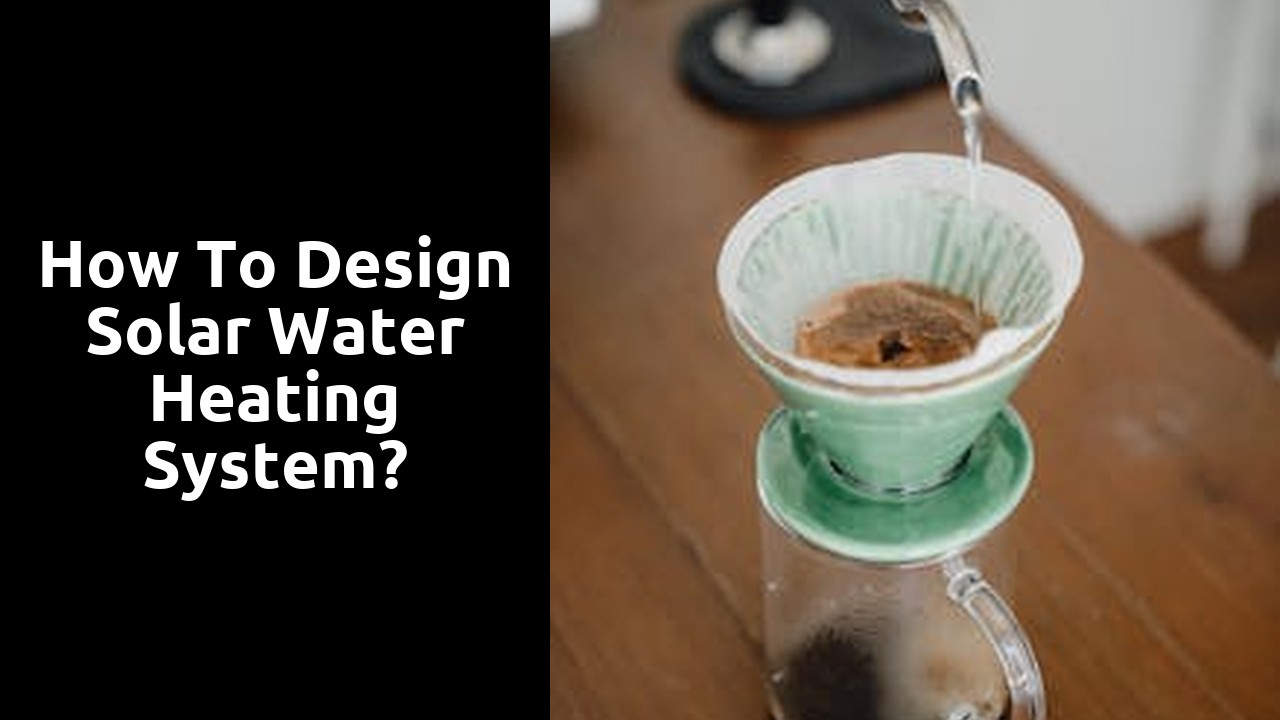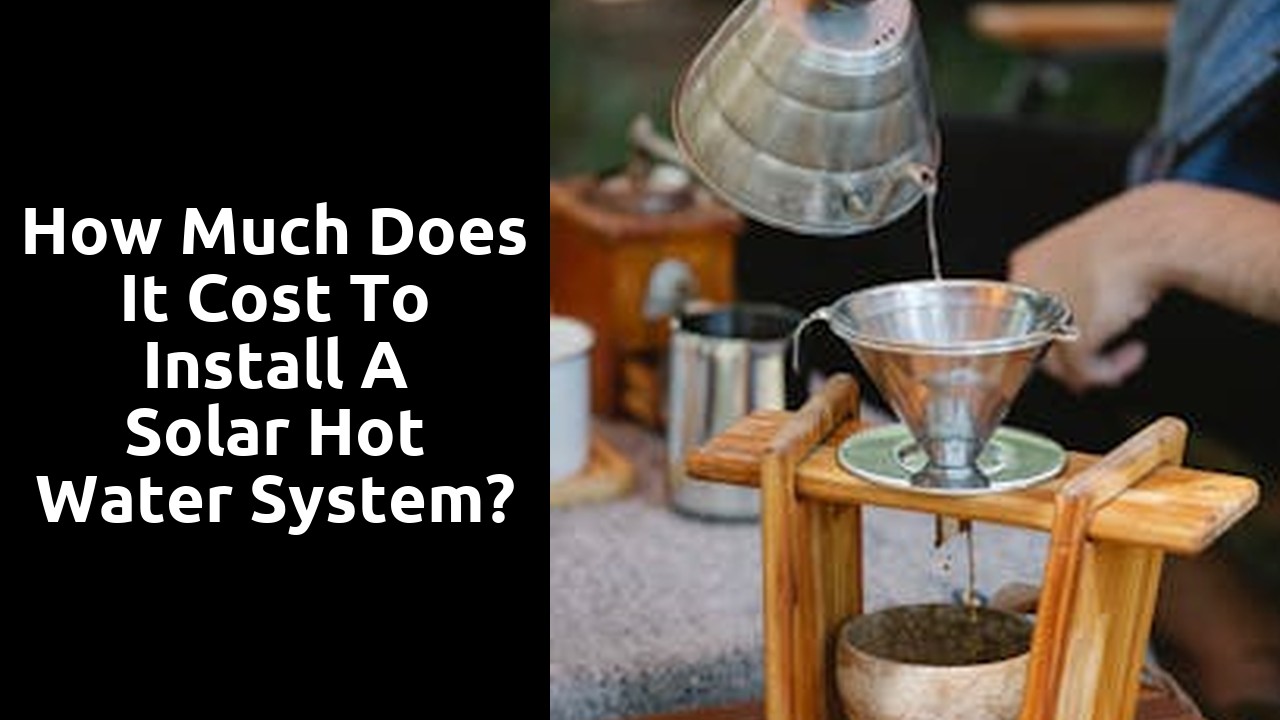
Maintenance and Upkeep
Maintenance and upkeep are crucial aspects of ensuring the optimal performance and longevity of your solar water heating system. Regular maintenance routines will help prevent any potential issues and keep your system running efficiently. It is recommended to schedule annual inspections by certified technicians to check for any leaks, corrosion, or other issues that could affect the functionality of your Solar Hot Water System Design and Installation.
Simple tasks like cleaning the collector surface, checking the insulation, and ensuring the water pH levels are within the recommended range are essential for the smooth operation of your system. By staying proactive with maintenance, you can maximise the efficiency of your solar water heating system and extend its lifespan. Remember, a well-maintained system not only saves you money in the long run but also contributes to a more sustainable and eco-friendly energy solution.
Ensuring Longevity of Your Solar Heater
To ensure the longevity of your solar heater, regular maintenance is essential. Establish a routine maintenance schedule for your system to keep it operating efficiently. Conduct thorough inspections of the system components, such as the collector, piping, and storage tank, to identify any potential issues early on. Cleaning the collector surface regularly to prevent dirt buildup will help maintain the system's efficiency. Checking for leaks or corrosion in the pipes and connections is also crucial to prevent any damage to the system. By staying proactive with maintenance, you can extend the lifespan of your solar water heating system and maximise its performance.
Monitoring the performance of your solar hot water system is key to ensuring its longevity. Keep track of the system's energy output and temperature levels to identify any fluctuations or inconsistencies. Regularly monitor the fluid levels and pressure in the system, as well as the overall efficiency of the solar collector. By staying vigilant and addressing any performance issues promptly, you can prevent potential system failures and maintain the optimal functioning of your Solar Hot Water System Design and Installation.
Monitoring Performance
To ensure optimal performance of your solar hot water system, regular monitoring is essential. Monitoring involves assessing the system's efficiency, detecting any potential issues early on, and ensuring that the system is operating at peak capacity. By keeping a close eye on the performance of your system, you can address any issues promptly and maximize the benefits of your solar hot water system.
One way to monitor the performance of your solar hot water system is by tracking the temperature of the water. A temperature gauge can provide valuable insights into the efficiency of your system and help you identify any fluctuations or inconsistencies. By regularly checking the water temperature and comparing it to the expected range, you can troubleshoot any issues that may arise and make necessary adjustments to enhance the overall performance of your Solar Hot Water System Design and Installation.
Evaluating the Efficiency of Your System
Evaluating the efficiency of your solar hot water system post-installation is crucial to ensure it is operating optimally. One method to assess efficiency is by comparing the actual performance of the system to its expected performance. This involves calculating the energy output the system should produce based on factors such as sunlight exposure and system design, and then measuring the actual energy output to see if it aligns with the projections in the Solar Hot Water System Design and Installation guidelines.
Furthermore, another way to evaluate efficiency is by monitoring the temperature of the water in the storage tank. Ideally, the water temperature should reach the desired level as efficiently as possible. If there is a significant delay in reaching the designated temperature or the water does not stay hot for an adequate amount of time, this could indicate inefficiencies in the system design or components. Regularly tracking and logging these temperatures can provide valuable insights into the overall effectiveness of your Solar Hot Water System Design and Installation.
Troubleshooting Issues
When troubleshooting issues with your solar hot water system design and installation, it is important to first check the control settings. Ensure that the thermostat is set to the appropriate temperature and that the system is receiving enough sunlight to function efficiently. Lack of sunlight exposure can often lead to subpar performance of the system, so make sure there are no obstructions blocking the sunlight from reaching the solar panels.
If the control settings are correct and sunlight exposure is not an issue, the next step is to inspect the piping and connections for any signs of leaks or damage. Leaks can significantly decrease the effectiveness of the system and should be promptly addressed to prevent further damage. Additionally, check the system for any airlocks that may be hindering the flow of water through the system. Keeping these factors in mind can help you efficiently troubleshoot and maintain your solar hot water system for optimal performance.
Common Problems and Solutions
Common problems can arise with your Solar Hot Water System Design and Installation, causing inconvenience and inefficiency. One common issue is a loss of heat due to air bubbles or mineral deposits in the system. These can reduce the system's efficiency and effectiveness in heating water. To address this problem, it is recommended to bleed the system to remove air bubbles and regularly flush it to prevent mineral buildup.
Another common problem with solar water heating systems is a malfunctioning pump or controller, which can result in inadequate water circulation or incorrect temperature regulation. To fix this issue, ensure that the pump is functioning correctly and all connections are secure. It is also important to regularly check the system's settings to ensure proper operation and efficiency. Maintenance and regular checks can prevent these problems and ensure the longevity and effectiveness of your solar heating system.
FAQS
How do I determine the size of the solar water heating system I need?
The size of the solar water heating system you need depends on factors such as the number of people in your household, hot water usage patterns, climate conditions, and available space for installation. Consulting with a solar energy professional can help you determine the appropriate size for your specific needs.
What type of solar collectors should I use for my solar water heating system?
The most common types of solar collectors used for solar water heating systems are flat plate collectors and evacuated tube collectors. The choice between the two depends on factors such as climate, space availability, and budget. Flat plate collectors are more affordable and suitable for warmer climates, while evacuated tube collectors are more efficient and perform better in colder conditions.
Do I need a backup heating system for my solar water heating system?
It is recommended to have a backup heating system, such as an electric or gas water heater, especially for periods of low sunlight or high hot water demand. This ensures that you have a continuous supply of hot water regardless of weather conditions.
How can I increase the efficiency of my solar water heating system?
To increase the efficiency of your solar water heating system, you can consider measures such as proper insulation of pipes, regular maintenance, positioning the collectors at the optimal angle for maximum sunlight exposure, and using a high-quality solar thermal collector.
Can I install a solar water heating system myself, or do I need professional help?
While it is possible to install a solar water heating system yourself if you have the necessary skills and knowledge, it is generally recommended to seek professional help. Professional installation ensures that the system is properly installed, optimized for efficiency, and compliant with local building codes and regulations.
How long does it take to recoup the costs of installing a solar water heating system?
The payback period for a solar water heating system varies depending on factors such as local energy prices, system size, efficiency, and usage patterns. On average, most homeowners recoup their investment in 4 to 8 years through energy savings.
Can a solar water heating system work in cold climates?
Solar water heating systems can still work effectively in cold climates, although their efficiency may be reduced compared to warmer regions. Proper insulation, positioning of the collectors, and using antifreeze solutions can help improve the performance of the system in cold weather conditions.
Are there any government incentives or rebates available for installing a solar water heating system?
Many governments offer incentives, rebates, tax credits, or subsidies to encourage the installation of solar water heating systems as part of their renewable energy initiatives. It is advisable to check with your local government or utility provider to see what incentives are available in your area.
How often should I perform maintenance on my solar water heating system?
Regular maintenance is essential to ensure the optimal performance and longevity of your solar water heating system. It is recommended to schedule an annual maintenance check-up by a qualified technician to inspect the system, clean the collectors, check for leaks, and ensure all components are functioning properly."""
